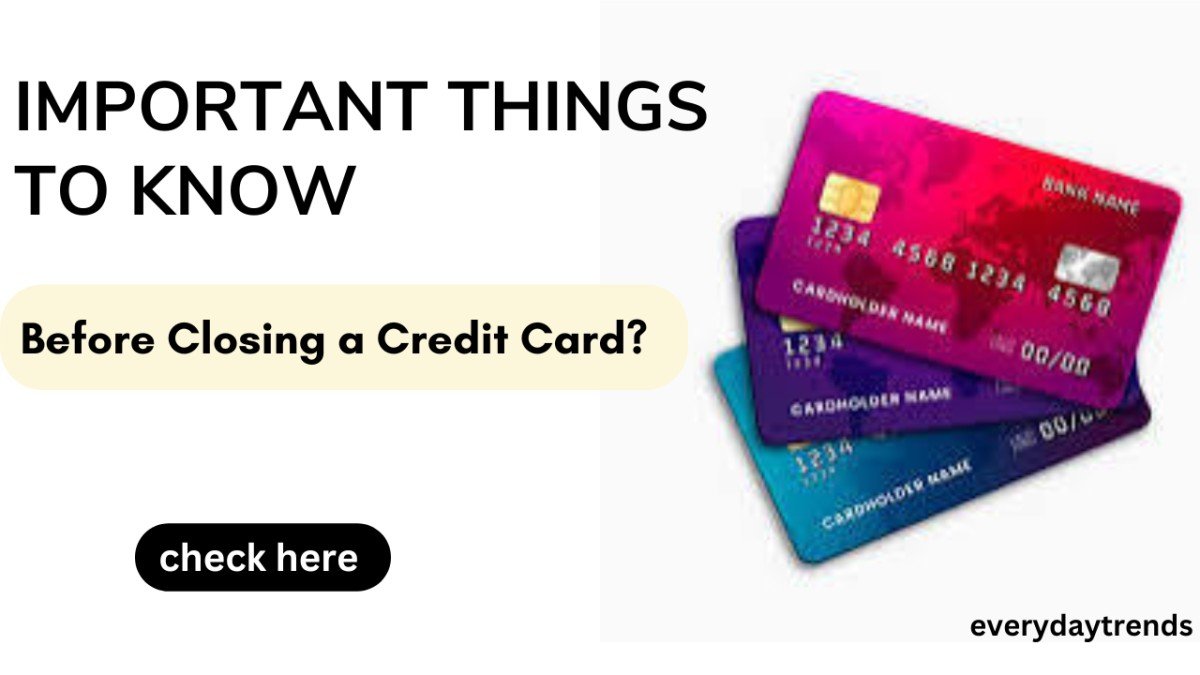Closing a credit card might seem like a simple decision, but it’s one that can have lasting effects on your financial health. Before you cut up your card and call it quits, here are a few key things to consider, explained in a straightforward and human-friendly way.
1.Understand Why You’re Closing It First, ask yourself: Why do I want to close this credit card?
- Is it because of high annual fees?
- Are you tempted to overspend?
- Or is it a card you no longer use?
Understanding your motivation will help you determine if closing the card is the best choice—or if there’s a workaround, like asking for a fee waiver or setting spending limits.
2.Know the Impact on Your Credit Score: Your credit score is affected by several factors, and closing a card can hit two of them:
Credit Utilization Ratio: This is the amount of credit you’re using compared to the total credit available. Closing a card reduces your available credit, which can spike your utilization ratio and potentially lower your score.
- Length of Credit History: If you close an older card, it could shorten your credit history, another key component of your score.
- Tip: If the card has a long history or a high credit limit, think twice before closing it.
3. Use Up Rewards Points : If your card offers cashback, travel miles, or rewards points, make sure to redeem them before canceling. Once the account is closed, those points are usually gone for good.
4. Pay Off the Balance First : Never close a card with an outstanding balance. While it’s possible to close the account and continue making payments, this can complicate things, and it might also increase your interest rate. Clear the debt entirely, so you can part ways cleanly and avoid future headaches.
5.Check for Any Hidden Fees: Some issuers may charge early closure fees or penalties if you close your account soon after opening it. Review your card’s terms and conditions or call customer service to confirm there won’t be any surprise charges.
6.Cancel Automatic Payments: If you have recurring subscriptions (like Netflix or a gym membership) linked to the card, update the payment method before canceling. Otherwise, missed payments could lead to unnecessary hassle or even penalties.
7. Notify Your Credit Card Company: Once you’re ready to close the card, call your credit card issuer to initiate the process. Be polite but firm. They might try to convince you to keep the account open with offers like reduced fees or bonus points. If your mind is made up, stand your ground.
8.Get a Confirmation in Writing: After closing the account, ask for a written confirmation from the issuer. This serves as proof that the account is closed and ensures no unexpected charges sneak through later.
9. Monitor Your Credit Report: Once the card is closed, keep an eye on your credit report to make sure the account is marked as “closed by consumer.” This phrasing reflects positively on your financial management.
Closing a credit card isn’t a decision to take lightly. Weigh the pros and cons, consider the long-term effects on your credit score, and take the proper steps to ensure a smooth closure. Sometimes, it’s better to keep the card open but inactive, especially if it doesn’t have an annual fee. Whatever you decide, make sure it aligns with your overall financial goals.

